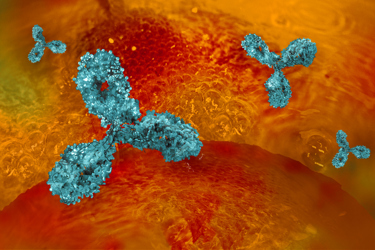Capillary Isoelectric Focusing (cIEF) As A Platform Method For The Evaluation Of Monoclonal Antibody Charge Variants
By Marina Sole, Sartorius Stedim BioOutsource Ltd.

Monoclonal antibodies (mAbs) are large, complex molecules which contain a certain degree of natural heterogeneity. Slight differences in a mAbs structure can cause variations in the overall charge of the molecule to emerge. Charge variants can be caused by modifications, such as C-terminal lysine truncation, deamidation and other post-translational modifications. These components are normally referred to as acidic or basic depending on how their isoelectric point (pI) compares to the main species. Modification of the charge variant ratios induced during manufacture, storage and transport, can potentially shift the pI of the protein, leading to detrimental effects on drug activity1. Analytical methods that can monitor charge variant ratios during manufacture and lot release are therefore essential to ensure drug safety and efficacy.
Capillary Isoelectric Focusing (cIEF) is a technique with high peak capacity and high-resolution power based on the separation of amphoteric molecules according to their pI, which can effectively distinguish between molecules that have minor differences in the net charge. This application note describes a versatile, broad pH cIEF method for the assessment of charge variant profiles of five different marketed mAbs, including an innovator molecule and one of its approved biosimilars.
The assay utilizes a Sciex PA 800 Plus instrument, which is the industry standard for GMP-compliant testing of protein biotherapeutics.
Get unlimited access to:
Enter your credentials below to log in. Not yet a member of Pharmaceutical Online? Subscribe today.
